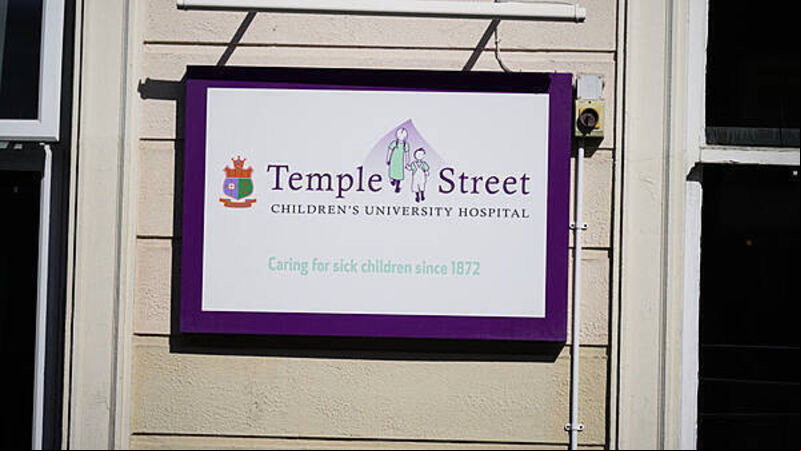CHI audit finds paediatric critical care units 'under strain'

Vivienne Clarke
An audit of the country's two paediatric critical care units, at Crumlin and Temple Street, has found that while they deliver high-quality care, the system is under strain.
The number of children itted to adult intensive care units doubled to 148 cases in 2023.
The National Office of Clinical Audit found high bed occupancy rates, that were above 95 per cent, and says more investment is needed.
The Minister for Health Jennifer Carroll MacNeill has said that one of her major concerns is how waiting lists are managed which was why she had called for an overall audit of how waiting lists are managed “across the board in CHI”.
Speaking on RTÉ radio’s Morning Ireland, Ms Carroll MacNeill said that as Minister she needed to ensure that the public system was working in the most productive way “during the public hours that consultants are paid to do public work in a public hospital.
“What's not acceptable and what the concern is here is that those procedures are not happening quickly enough or in a sufficiently efficient way and that they're becoming such long waiters that NTPF intervention is required.
“So my underlying issue is, how are those lists being managed? So what I've done is, Bernard Gloster and I have decided to have an overall audit of how are these waiting lists managed generally across the board in CHI in every discipline to ensure that that's not being replicated.”
Ms Carroll MacNeill urged concerned parents to “just sit with me and sit with the NTPF for a number of days, for a week or 10 days to allow the NTPF to do their work".
“This is something where the NTPF absolutely need assurance that this is being done correctly but what they also need is to make sure that there is no mismanagement of lists such that a child is waiting so long that they are required to be on the NTPF list where there could have been an earlier surgical intervention.
“And that is the bigger issue here. That is the bigger issue and that is what raises such particular concerns around the issues in this report but it also raises the broader patient safety concerns and what we need to do is make sure that that is happening in the most productive way in the public system in every discipline.”
The Minister said that in addition to the audit there would be a change to a centralised referral mechanism which would mean that if a child was referred to a consultant surgeon, they would not be referred to an individual surgeon, but into a central referral mechanism.
“Which means that the hospital can assess who has the shortest list, who has capacity to do this, rather than being sort of assigned to or stuck with an individual, who then has the capacity to do things at whatever pace, and some of them are doing very efficiently, and others less so.”
“We need to make sure and the NTPF need to make sure, and I need to make sure, Bernard Gloucester needs to and the CHI need to make sure that there are no perverse practices or no perverse incentives from the way in which waiting lists are managed.
“So I would ask parents to just sit with me just for a week or 10 days to allow the NTPF to get these assurances and to do their work. The NTPF have already assured that existing surgery scheduled will not be impacted but our concern is we need to make sure that this isn't happening anywhere else in the system.”
Ms Carroll MacNeill acknowledged that the NTPF had only recently discovered that there had not been a referral to the National Patient Safety Office.
“Let's not underestimate the impact of that, nor was there a referral to the department or a notification to any of us. So that's not a satisfactory way of managing that, and I expect that to be very, very different. There is no CHI without the state. The state is the funder of all of these services, and people who work in CHI, both at executive level, but let me be very clear, consultants in CH , and everybody who is in CHI is a public servant, and it is important that they understand that.”









